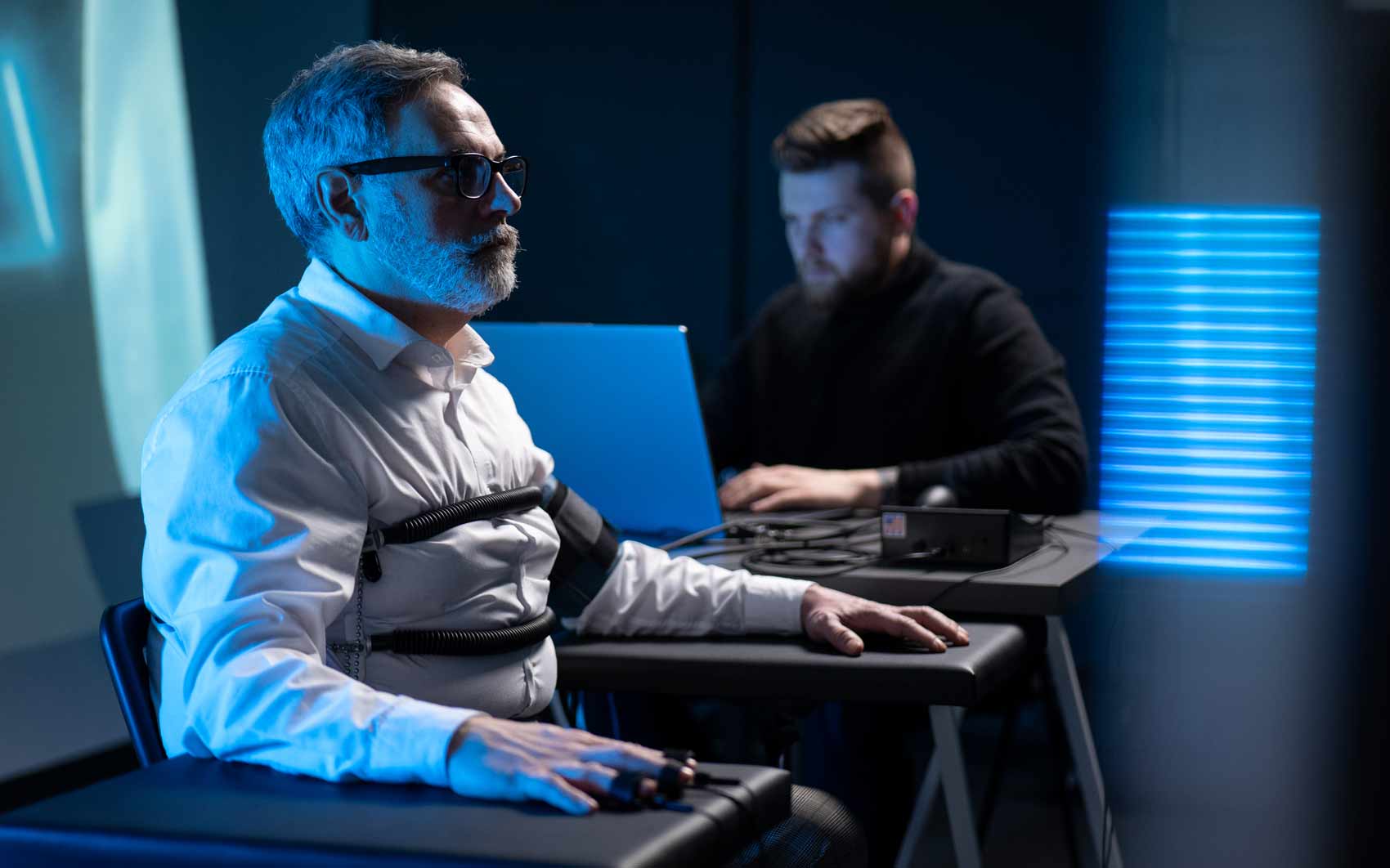Polygraph tests, often known as lie detector tests in NYC, have long been a subject of fascination, controversy, and debate. In the United States, and particularly in a bustling hub like New York, polygraph examinations are used in various contexts, ranging from law enforcement investigations to employment screenings. While their accuracy and admissibility in court remain contested, many individuals and organizations still rely on them as a tool for assessing truthfulness. To better understand how lie detector tests work, their history, their uses in New York, and the challenges surrounding them, it is important to look at the science behind polygraphs, the legal landscape, and the cultural attitudes toward them.
What Is a Polygraph Test?
A polygraph test is a procedure designed to measure physiological responses that may indicate whether a person is telling the truth or being deceptive. The term “polygraph” literally means “many writings,” referring to the multiple signals it records at the same time. During a typical test, a person is asked a series of structured questions while being monitored by specialized equipment. The machine records indicators such as heart rate, blood pressure, respiration, and skin conductivity. The assumption is that when a person lies, their body exhibits involuntary stress responses, which the polygraph captures.
The test is usually conducted in three stages: the pre-test interview, the actual questioning phase, and the post-test analysis. In the pre-test stage, the examiner explains the process and establishes baseline responses by asking simple, neutral questions. In the questioning phase, relevant and control questions are mixed to observe physiological differences. Finally, the examiner interprets the data to provide an opinion on whether deception was likely.
A Brief History of the Polygraph
The origins of the polygraph can be traced back to the early 20th century. John Augustus Larson, a medical student and police officer in California, is credited with inventing the first modern polygraph in 1921. His device combined measurements of blood pressure and respiration, laying the foundation for future developments. Later, Leonarde Keeler refined the machine in the 1930s by adding the measurement of skin conductivity, which remains a core component of polygraph testing today.
Throughout the decades, polygraph tests gained popularity among police departments and intelligence agencies as a method to detect deception. By the mid-20th century, they were used not only in criminal cases but also in employment screenings, particularly for government and security-sensitive jobs. However, from the beginning, critics questioned the validity of polygraphs, arguing that physiological reactions to stress do not always equate to lying. Despite this skepticism, polygraphs have continued to hold a prominent, if controversial, place in American society.
Polygraph Use in New York
In New York, as in many states, polygraph tests are used in a variety of settings. Law enforcement agencies may employ them during investigations to gather additional information or verify statements made by suspects and witnesses. While polygraph results are generally not admissible as evidence in New York courts, they may still influence the direction of an investigation.
Beyond law enforcement, polygraph tests are sometimes used in private contexts. Employers, particularly in sensitive industries such as security, financial services, and government contracting, may request lie detector tests for employees or job candidates. However, the federal Employee Polygraph Protection Act (EPPA) places strict limits on private employers’ use of polygraphs, allowing them only in very specific circumstances. In New York, state laws work in tandem with federal restrictions to ensure employees are protected from unnecessary or coercive testing.
Additionally, polygraph testing plays a role in probation and parole programs. Some individuals convicted of certain crimes, such as sex offenses, may be required to undergo periodic polygraph examinations as part of their supervision. These tests aim to ensure compliance with probation conditions and to reduce the risk of reoffending.
The Science Behind Lie Detection
The polygraph is built on the idea that lying produces measurable stress responses. When someone fabricates an answer, they may experience increased heart rate, faster breathing, elevated blood pressure, and changes in skin conductivity due to sweating. The polygraph machine records these changes in real time.
However, one of the most significant criticisms of the polygraph is that these physiological signals are not unique to lying. Anxiety, fear, embarrassment, or even the stress of being tested can trigger similar responses. Conversely, some individuals may remain calm while lying, which could make deception difficult to detect. Critics argue that this lack of specificity undermines the scientific reliability of polygraph results.
Despite these limitations, proponents maintain that polygraphs can be highly effective when administered by experienced examiners under controlled conditions. According to supporters, the polygraph is not a “lie detector” in the absolute sense but rather a “psychophysiological detection of deception” tool that can reveal valuable insights when used appropriately.
Admissibility in New York Courts
One of the most debated aspects of polygraph use in New York is its admissibility in court. Generally, New York courts do not accept polygraph results as evidence in criminal trials, largely due to concerns about their reliability. The state’s courts, like those in many jurisdictions, follow the principle that polygraph evidence could unduly influence juries, who might perceive the results as more scientifically conclusive than they actually are.
That said, polygraphs may still be used in pre-trial or investigative contexts. For example, prosecutors and defense attorneys may agree to conduct a polygraph examination as part of plea negotiations. In civil cases, where the standards of evidence are somewhat different, polygraph results might occasionally be considered if both parties agree. Nonetheless, the prevailing legal stance in New York is that polygraphs are not sufficiently reliable to serve as definitive evidence in court.
The Role of Polygraph Examiners
The effectiveness of a polygraph test depends heavily on the examiner’s skill and professionalism. In New York, polygraph examiners may work in law enforcement agencies, private investigation firms, or specialized polygraph service companies. A qualified examiner undergoes training in both the technical operation of the polygraph machine and the psychological techniques necessary for effective questioning.
An examiner’s job extends beyond reading physiological charts. They must establish rapport with the examinee, formulate carefully structured questions, and interpret results with nuance. Because the interpretation of polygraph data involves a degree of subjectivity, the examiner’s expertise is critical. Poorly conducted tests can lead to inaccurate conclusions, which is one reason critics caution against overreliance on polygraphs.
Public Perception and Cultural Influence
In New York, as elsewhere in the United States, public perception of polygraph tests is mixed. On one hand, popular culture often portrays polygraphs as near-infallible devices. Television crime dramas, movies, and news reports sometimes depict lie detector tests as definitive truth-revealing machines. This portrayal can create unrealistic expectations among the public, leading people to overestimate their accuracy.
On the other hand, growing public awareness of the limitations of polygraphs has fueled skepticism. Civil liberties advocates warn against their misuse, highlighting cases where individuals were unfairly pressured into taking or failing a test. Critics also argue that reliance on polygraphs can divert attention from more rigorous investigative methods, such as forensic analysis or corroborating witness testimony.
Despite these criticisms, polygraph tests remain culturally significant. Many New Yorkers are familiar with the concept, even if they have never personally encountered a polygraph exam. The continued interest in lie detection reflects society’s enduring fascination with uncovering hidden truths.
Alternatives to Polygraph Testing
Given the controversies surrounding polygraphs, researchers and law enforcement agencies have explored alternative methods of lie detection. Some approaches focus on analyzing microexpressions—tiny, involuntary facial movements that may reveal concealed emotions. Others use brain imaging technologies such as functional MRI (fMRI) to detect patterns of neural activity associated with deception.
In New York, these newer technologies are not yet widely used in criminal justice settings, partly due to cost, accessibility, and legal challenges. However, they represent potential future directions for lie detection research. Whether these methods will prove more reliable than the polygraph remains to be seen, but they reflect ongoing efforts to address the limitations of existing tools.
Ethical and Legal Concerns
The use of polygraph tests in New York raises important ethical and legal questions. Critics argue that subjecting individuals to polygraphs can violate privacy and create coercive situations, particularly in employment contexts. While federal and state laws provide some protections, there are still concerns about whether individuals fully understand their rights when asked to undergo a test.
Another ethical issue is the potential for false positives and false negatives. A person may fail a polygraph test despite telling the truth, or they may pass despite lying. Such outcomes can have serious consequences, especially in legal or employment settings. This risk underscores the importance of treating polygraph results as one piece of information rather than definitive proof.
Location In New York
- Harrison – 500 Mamaroneneck Avenue, Harrison, NY 10528
- Garden City – 1225 Franklin Ave, Garden City, NY 11530
- New York City – 60 East 42nd Street, 46th Floor, New York, NY 10165
- Yonkers – 73 Market Street, Yonkers, NY 10710
- Albany – 401 New Karner Rd 3rd Floor, Albany, NY 12205
- Syracuse – 323 James St, Syracuse, NY 13203
- Bronx – 1500 Astor Ave 2ND FLOOR, Bronx, NY 10469
- New Rochelle – 173 Huguenot St, New Rochelle, NY 10801
- Rye – 411 Theodore Fremd Ave South, Rye, NY 10580
- Lake Success – 1979 Marcus Avenue, Lake Success, NY 11042
- Suffern – 400 Rella Boulevard, Suffern, NY 10901
- Tarrytown – 520 White Plains Road, Tarrytown, NY 10591
- Rye Brook – 800 Westchester Avenue, Rye Brook, NY 10573
- Purchase – 287 Bowman Avenue, 2nd Floor, Purchase, NY 10577
- Pearl River – 1 Blue Hill Plaza, 3rd Floor, Pearl River, NY 10965
- Port Jervis – 15 Jersey Avenue, Port Jervis, NY 12771
- Haverstraw – 87 Route 9W, Haverstraw, NY 10927
- New City – 254 South Main Street, New City, NY 10956
- Armonk – 200 Business Park Drive, Armonk, NY 10504
- Hawthorne – 7 Skyline Drive, 3rd Floor, Hawthorne, NY 10532
- Briarcliff Manor – 555 Pleasantville Road, Briarcliff Manor, NY 10510
- Tuxedo Park – 1 Serenity Plaza, Tuxedo Park, NY 10987
- Brewster – 1620 Route 22, Brewster, NY 10509
Conclusion: The Place of Polygraphs in New York Today
Polygraph tests, or lie detector tests, occupy a complex space in New York’s legal, professional, and cultural landscape. While they are not admissible in most courtrooms due to questions of reliability, they continue to play a role in investigations, probation monitoring, and certain employment contexts. The science behind polygraphs remains both intriguing and controversial, reflecting the broader challenge of finding reliable ways to detect deception.
For New Yorkers, understanding the strengths and limitations of polygraph tests is crucial. Whether someone encounters a polygraph in a legal matter, a job setting, or simply in popular culture, it is important to approach the subject with an informed perspective. The polygraph is not a perfect lie detector, but rather a tool that—when used carefully and ethically—can provide insights into human behavior. Ultimately, the story of polygraphs in New York is one of balance: between science and skepticism, between utility and fairness, and between society’s desire for truth and the limitations of the tools available to uncover it.








